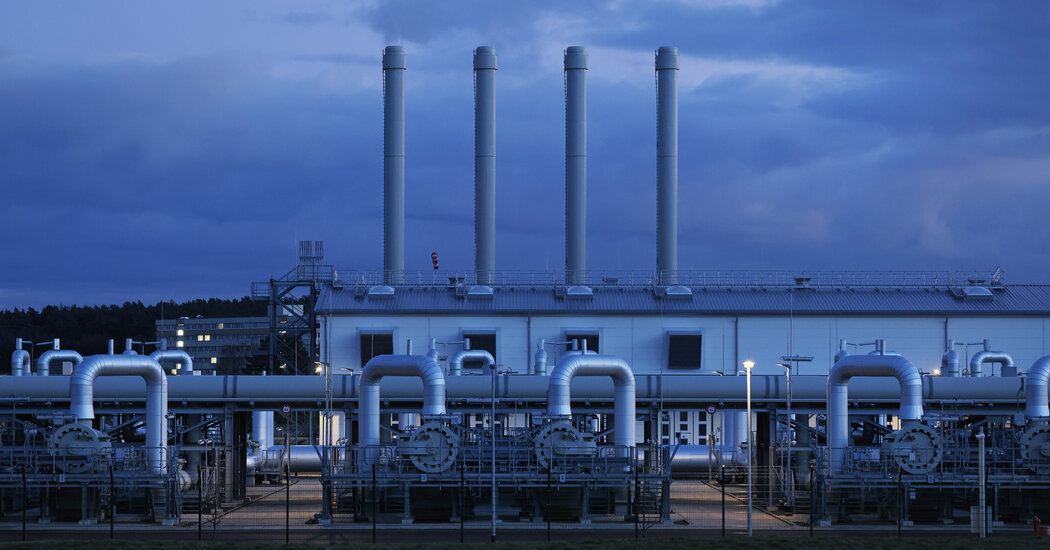Russia’s belligerence against Ukraine is underscoring once again the inextricable link between national security and energy security. Today, Russia is flexing its energy dominance over a dependent Europe. But tomorrow, the danger may come from China and its control over the raw materials that are key to a clean energy future.
The United States and its allies must ensure that doesn’t happen.
In recent years America has been lulled into a false sense of energy independence. The shale revolution of the past decade has generated incredible supplies of vital natural gas and oil. European countries, blessed with diverse economies, have also felt relatively secure in recent years. But that is changing.
Germany now depends on Russian suppliers for as much as two-thirds of its natural gas and the European Union for about 40 percent. And as it phases out its nuclear power plants by year’s end, Germany, Europe’s largest economic force, has appeared more hesitant than its peers to forcefully confront the Kremlin. Moscow sees Europe’s energy dependence for what it is: a supply chain dynamic it can control and exploit at will.
In the United States, gasoline prices have reached levels not seen since 2014. America is still bound to international oil markets that have grown increasingly nervous at the unpredictability of Russia, a key global oil producer. While U.S. policymakers scramble to find the usual Band-Aids, consumers and businesses are once again being stung by rising prices at the pump. America’s recently self-proclaimed “energy independence” is a lot more interdependent than advertised.
Are the United States and its allies adequately focused on the risks of today’s energy reality? Have they positioned themselves for a future in which they have ready access to the raw materials essential to emerging technologies?
The answer is no — they are at risk of being usurped by adversaries. And perhaps the biggest threat ahead is China. The United States and its allies are making strides to harness diverse and clean energy sources like wind, solar and hydrogen. They are smartly deploying electric vehicles to end our dependence on oil and its market-controlling cartel. Increases in battery efficiency are helping to encourage both trends.
But the danger of the electric vehicle transition especially is that it will convert America’s current vulnerability to oil and gas markets to dependence on a supply chain for critical minerals for advanced batteries that is now controlled by and flows through China.
Over a decade ago, China made a strategic decision to corner the world of electrification. It made substantial investments in the manufacture of batteries and the assembly of electric vehicles, as well as in the mining and processing of minerals vital for E.V.s.
As of 2020, Chinese firms controlled more than 60 percent of the world’s lithium and nickel refining and over 70 percent of cobalt refining, according to a report prepared by the consulting firm Roland Berger for SAFE, the energy security group that one of us chairs. These are essential for lithium ion batteries used in electric vehicles. The same report found that U.S. companies account for only 4 percent of lithium, 1 percent of nickel and zero percent of cobalt refining. Further along this supply chain, Chinese companies produce 41 percent of the cathodes and 71 percent of the anodes used in E.V. batteries. The United States produces essentially none of these key components.
The bottom line is that the United States now depends heavily on supply chains from nations that do not share our interests and values. Policymakers must heed this risk or risk being held hostage by these nations.
As a starting point, the United States should make sure that its traditional energy sources comply with the most stringent environmental standards. It also must be willing to invest in domestic mining and processing of these essential raw materials. With advances in industrial technology, this can be done with comparatively minimal environmental impact. America must also work with other nations — Canada and Australia are examples — to develop alternatives to the current Chinese-dominated system. This will prevent China from cementing its position as a singular choke point.
In addition, the United States should continue to support the development of electric vehicle assembly and battery cell manufacturing on its owns shores; otherwise competitors will establish an insurmountable lead. As of last year, 211 major battery factories were planned or under construction around the world; 12 were in the United States, 156 were in China.
The situation facing Ukraine has demonstrated how quickly the dynamics of energy dependency can be turned against Western interests. To set the United States and its allies on a path of long-term national security, America must focus on supplying the energy it needs today while rapidly building out a renewables supply chain that is beholden to no single nation.
Adm. Dennis C. Blair, the chairman of the energy security group SAFE, was a director of national intelligence in the Obama administration and served as commander in chief of the U.S. Pacific Command before his retirement from the Navy. Gen. Joseph F. Dunford Jr., a resident senior fellow at the Belfer Center at Harvard, was chairman of the Joint Chiefs of Staff in the Obama and Trump administrations and served as commandant of the Marine Corps.
The Times is committed to publishing a diversity of letters to the editor. We’d like to hear what you think about this or any of our articles. Here are some tips. And here’s our email: letters@nytimes.com.
Follow The New York Times Opinion section on Facebook, Twitter (@NYTopinion) and Instagram.


























